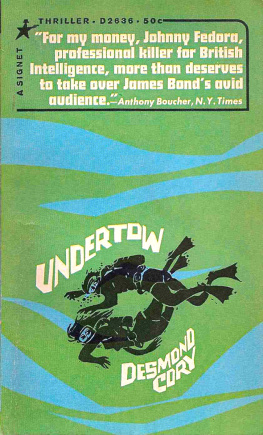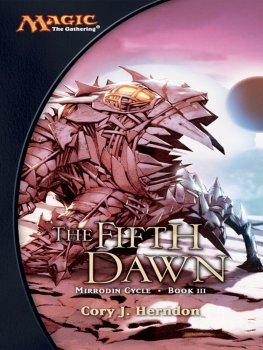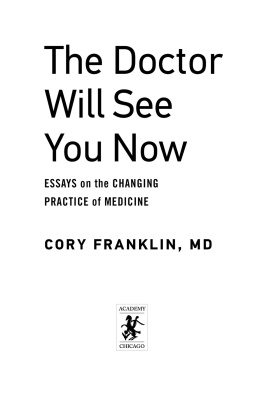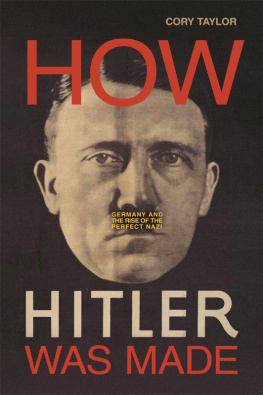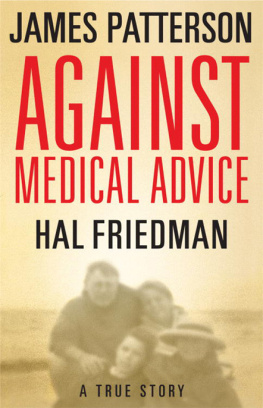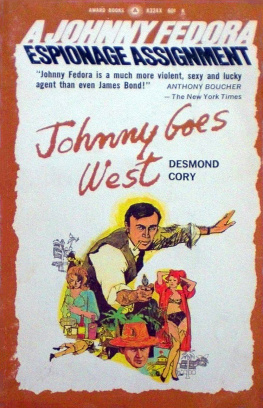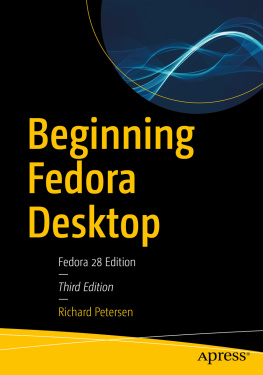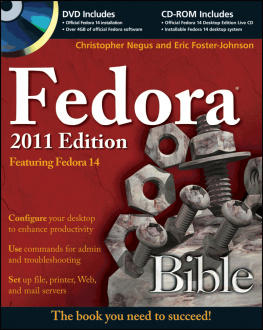JOHN FEDORA,
free-lance liquidator on hire to Britain, part Spanish, part Irish, all killer, is the creation of a brilliant new writer who has rocketed to top place in the spy-thriller game.
UNDERTOW
is the name of his novel. The setting is Francos Spain. The action races at a sex-spurred pace. And the plot is one of the most devious and sinister ever to come out of Cold War espionage!
Desmond Cory seems to me to accomplish in Undertow precisely what Fleming is aiming at. This is a sexy, colorful, glamorous story of intrigue and violence, complete with spectacular setpieces (including a grand finale in a long-submerged submarine) and even a torture scene. And it is written with finesse, economy, humor and full inventive plotting. For my money, Johnny Fedora, professional killer for British Intelligence, more than deserves to take over James Bonds avid audience.
Anthony Boucher, N. Y. Times
On the floor of
the Gibraltar Straits
lies a sunken Nazi U-Boat.
Nearby on the Spanish coast two men lie in wait: Johnny Fedora, the debonair British spy... and Feramontov, a Soviet agenta devious plotter who has concocted a most ingenious scheme involving a seductive beauty and a psychopathic killer.
Both men want the same thing, the World War II documents that still lie in the shattered hold of the submarine. Many will die before Fedora and Feramontov meet in an encounter so bloodcurdling that it may well wrench a scream from the unprepared....
Desmond Cory provides what is far and away one of the most sheerly exciting climaxes of the year. Undertow is a gem-hard thriller, plotted tightly, told with economy and vigor. It calls for loud hurrahs for Mr. Coryand for many encores.
Buffalo Evening News
Desmond Cory has written the ultimate in international spy activities... a real old-fashioned thriller.
New York Morning Telegraph
Copyright 1962 D ESMOND C ORY
All rights reserved. No portion of this work may he reproduced
without permission except for brief passages for the purpose of
review. For information address Walker & Company,
10 West 56th Street, New York, New York 10019 .
Published as a SIGNET BOOK
by arrangement with Walker & Company,
who have authorized this softcover edition .
A hardcover edition is available from Walker & Company .
First P RINTING , J ULY , 1965
All characters in this book are fictitious,
and any resemblance to actual persons, living or dead,
is purely coincidental.
SIGNET TRADEMARK REG . U . S . PAT . OFF . AND FOREIGN COUNTRIES
REGISTERED TRADEMARK MARCA REGISTRADA
HECHO EN CHICAGO , U . S . A
SIGNET BOOKS are published by
The New American Library of World Literature, Inc.
1301 Avenue of the Americas, New York, New York 10019 .
PRINTED IN THE UNITED STATES OF AMERICA
J UAN Guerrero lay face down on the stiff, rutted clay to one side of the road, and a small black beetle crawled over the palm of his hand. Guerrero took no notice. He wore the loose grey uniform that is issued to all inmates of Francos prisons; the cuffs were rucked back to show his thin forearms, grey with the pallor of the jail, furred with tiny black hairs.
Juan Guerrero was dead. There was a small wound at the base of his throat, a wound that had been made by something like a meat skewer; something that had penetrated the sinews of his neck and severed the carotid artery. Guerrero had fallen to his knees and had then pitched forward, and the rough soil had tom open the skin of his nose and forehead; he had felt no pain, though. He had been dead already. The artery had continued pulsing for twenty seconds or a little less, spouting his blood on to the dry Spanish soil; but the earth had long since swallowed it up and now nothing was left but a dark circular stain, about three feet in diameter, in the centre of which his head rested. A stain like a black halo.
The tall man with the camera stood up and nodded, and the two men who had been watching him stooped down and turned Guerrero over. The tall man leaned forward; the impassive eye of the camera lens stared at the tiny puncture in Guerreros neck. A sudden blink of sharp white light, a click. The tall man changed the flash bulb, took another shot from a different angle. His movements were unhurried, unconcerned.
In the end he dismantled the flash carrier, snapped the camera into its case and turned casually away towards the waiting SEAT four-seater. The other two men followed, ten paces behind him. The car doors slammed noisily in the throbbing evening stillness; after a moments pause, the engine picked up and the car drove off. A fine white powdery dust drifted up into the air, and grains of it settled on Guerreros crumpled body.
E XCELLENT , said Acua. Excellent.
He pushed the photographs across the desk. Valera picked them up, holding them lightly between his fingertips, and tilted them towards the window. Yes, he said, staring at them. Excellent. What was the weapon?
We dont know. Something he improvised. A ground-down bed-spring, perhaps, or something like that. It hardly matters. Look where he placed itthats the point. He hasnt lost his touch.
Valera looked up. You seem almost pleased about it.
Quite the contrary. But one must admire professional competence whenever one comes across it.
Acua pushed back his chair and stood up. Acua was a small man with a heavy paunch, so heavy that he seemed to roll himself forward rather than to walk; he had his chin lowered to his chest and his hands thrust deep into his pockets, and both these factors contributed to the effect. The top of his sunken head was big and round and bald and polished. There was something slightly obscene about Acua. People rarely felt at ease in his presence. The discomfort he caused them was purely physical; his job had nothing to do with it. Only a handful of people knew what his job was.
Valera knew, but Valera was one of the few men on whom Acuas personal appearance made no impression at all. Valera was a policeman, part of a very large machine; he had grown accustomed to treating his superior officers as components of the same mechanism, all performing their functions with greater or less efficiency. And if he ever felt a certain revulsion towards his role as Acuas chief assistant, he never showed it.
Acua was in fact a mass murderer. In the twenty-odd years since the Spanish Civil War had ended, he had killed nearly three thousand men and women. Death had been the punishment for crimes of which, nine times out of ten, they had been no more than technically guilty; this Acua knew as well as anyone, but... he believed in making sure. He knew very little for certain. All that he knew was that somewhere in that vast pile of three thousand mouldering corpses lay the bodies of seventy-six of the Soviet Unions most expert and highly-trained spies and saboteurs, and with their bodies so much else.... Long years of arduous labour in the Agitprop schools, hours of expert instruction of other spies, a whole vast series of events that had never taken placeburning factories, crashing aircraft, nationwide strikes, unexpected assassinations. That was all that Acua knew. He didnt even know exactly which were the seventy-six bodies that counted. It didnt matter much. They knew in Moscow.
They knew in Moscow, all right. They knew that in Western Europe there was one man, at least, who had learnt their own methods of total extermination and who put them to violent practice. But they didnt know who it was. Four men of the seventy-six had been sent to Madrid to find out. They had failed to do so. They had died. And Acua, meanwhile, lived; a bald, greasy man like a bladder of lard, sending out his executioners to prisons and to private houses all over Spain. A man much hated, but rarely despised.
Next page
